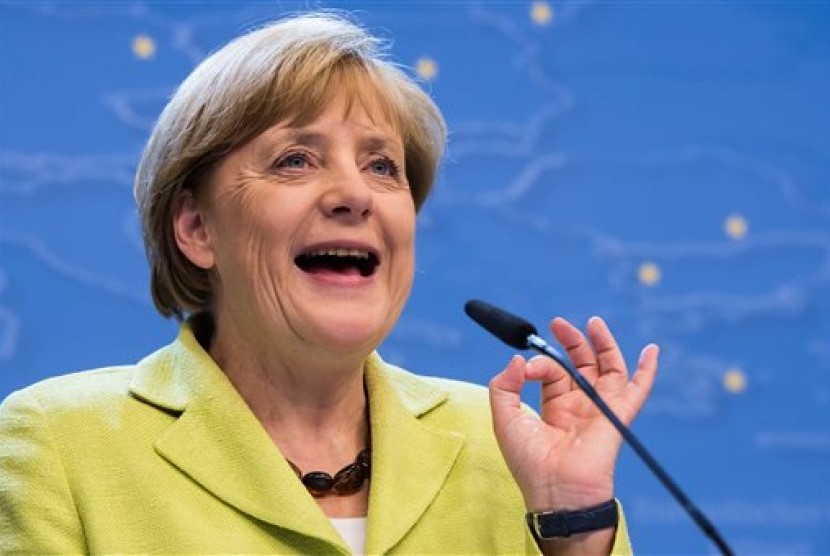REPUBLIKA.CO.ID, TOKYO -- German Chancellor Angela Merkel on Tuesday urged Japan to resolve issues surrounding Tokyo's system of wartime sex slavery, her second foray into the delicate issue of East Asia's history.
Winding up a whirlwind visit to Japan, Merkel met Katsuya Okada, head of the main opposition Democratic Party of Japan and said Tokyo should "go ahead with reconciliation" with South Korea over what Japan euphemistically refers to as "comfort women".
"Japan and South Korea share values," Merkel told Okada, according to Jiji Press. "It's better to resolve the... issue properly."
Despite a dearth of official records, mainstream historians say up to 200,000 women, many from Korea but also from China, Indonesia, the Philippines and Taiwan, served Japanese soldiers in military brothels.
Most agree that these women were not willing participants and that the Imperial Japanese Army and wartime government were involved in their enslavement, tacitly or explicitly.
Right-wingers, however, say the women were common prostitutes engaged in a commercial exchange, and are fighting a vigorous rear-guard battle to alter the narrative.
Merkel's comments come as Japan readies to mark the 70th anniversary of its defeat in World War II at a time Prime Minister Shinzo Abe's conservative views on Tokyo's war crimes are under scrutiny, and as China and South Korea continue to call for ever more contrition.
Following a summit with Abe on Monday, Merkel told a news conference that settling wartime history is "a prerequisite for reconciliation".
Japanese Foreign Minister Fumio Kishida, however, insisted that it is "inappropriate to simply compare" Japan with Germany over their post-war settlement.
"The background -- what happened to Japan and Germany during the war and what countries their neighbours are -- is different," Kishida told reporters.
Relations between Japan and its wartime victims, China and South Korea, are at a low point, with Beijing and Seoul both demanding Tokyo does more to atone for its past. Both countries suffered from Japan's militarism in the first half of the 20th century.
But Japanese nationalists say Tokyo has apologised enough, and that the constant references to WWII are being used by governments in China and South Korea who to direct popular anger elsewhere.
Later in the day, Merkel visited truck manufacturer Mitsubishi Fuso, nearly 90 percent controlled by German auto giant Daimler, in Kawasaki and toured its assembly line, the final destination of her two-day itinerary.


